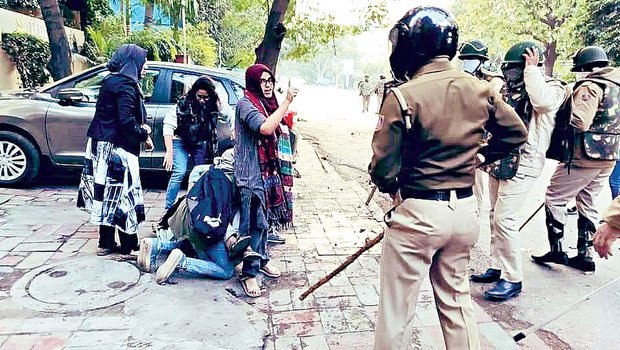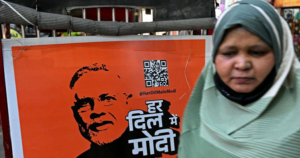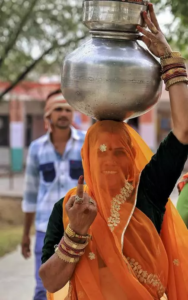Ushosee Pal & Sanchari Basu Chaudhuri
Time and again, students have shown the way to dissent peacefully and demand change. And, Friday, the 13th of December, 2019, was no different.
Three to four teachers were giving a speech about NRC and CAB inside the campus while a number of students (around fifty) listened. It was peaceful inside the campus on that rainy December afternoon. We heard that there was going to be a non-violent protest against CAB inside the campus followed by a long march. Some scholars joined them. Meanwhile some of us went to our departments to carry out our examination hall duties. As the students wrote their exams, blasts were heard. In a few minutes, the classroom started filling up with an acidic smell burning our eyes, noses and throats. Many of us started coughing and gasping. While we were flummoxed by these noises and gases, it was the Kashmiri students who pointed out to us that tear gas shells were being blasted outside. We realised that the cops had already entered the campus to stop the unarmed march with weapons.
The staff members, the faculty present and the invigilating scholars sprang into action. We first closed the windows of the exam hall and shifted the more affected students to relatively safer air. We closed the gates of the department, manned continuously by staff members who decided not to allow groups inside to avoid any situation which may endanger the students by putting them at the receiving end of the frenzied mob. At the same time, affected persons were helped out with a continuous supply of drinking water. Also, some heavily affected individuals were brought inside despite the risk because, for us, in that moment, humanity came before safety.
While students were writing their exams, we could hear tear gas being shelled. We were terrified. The uncontrollable tears and the shaking hands of some students who resolutely managed to finish their paper in a panic-ridden state are the images that one experiences in a siege. These images remain elusive amongst the visuals of abject brutalities which surface and are played on loop on primetime media. The spectacle often makes up for dinnertime entertainment.
But not all Jamia students were out on the streets protesting. Many students, up until Friday, earnestly believed that education can give them entry into the system for an opportunity to bring about positive changes from within. And there were so many who continued to do their jobs despite the situation outside. The university and its scholars did not stop functioning when the police came in on Friday. It was forced to postpone exams after Friday because the cops came in.
In the recent times, many progressive, educated voices have questioned the need for a university catering specifically to minority groups. Some of us non-Muslim students, when we mention Jamia as our alma mater, notice faint change in the facial expressions of even the most progressive and politically correct individuals. No amount of argument convinces them that minority institutions such as JMI provide a space to the marginalised to feel at ease in their pursuit of knowledge. This is very relevant in a country where the dominant groups are steeped in prejudice, bigotry, suspicion and vitriolic hatred towards the minorities.
The JMI campus, up until Friday, was a safe space for its students. Many students from remote villages and marginalised sections are enrolled in the university, who aspire for socio-economic mobility. It provides a safe space to its female scholars from diverse sections without placing restrictions on their movement, day or night. In the context of minorities, a safe space is the cornerstone for their representation and facilitates communication, critical dialogue and sharing of learning experiences. Critical thinking and speech raises difficult questions and a university is supposed to provide space for diverse dialogue through which such questions can be addressed. A by-product is the ability to quickly identify socio-political undercurrents which shape state policies. Naturally, student protests are the vehicles through which these alternative thoughts have any chance of reaching the masses. These protests (which are largely peaceful and constitutional) become the medium for communicating dissent.
Jamia, on account of its minority status, also voices the concerns of the repeatedly silenced and marginalised groups. Its contribution to India’s commitment to secularism and inclusivity cannot be overlooked. Moreover, it also provides a platform for students from these communities who want to engage in purely academic endeavours but have limited access and resources to enter the mainstream academia otherwise. On Friday, the 13th, it was the violation of this safe space which shocked the academic community.
Is this what new India looks like for us students? Why terrorise students out of education and critical thinking? The current crisis in our safe space has left us shattered. How, then, do we assure students that their safe space will be restored. Moreover, how do we continue with our tradition of inclusivity without feeling threatened?
The role of a university goes beyond education; it is also a conscience keeper. And the library is at the heart of it. It is representative of a meditative space where students can escape to, for the pleasure of reading. Vandalising the library, thus, symbolises an attack on students’ safe space. Seemingly, all of a sudden, the library has become a greater threat than protestors on the street.
(Ushosee Pal is a doctoral scholar and a UGC fellow at the Department of sociology, Jamia Millia Islamia. Sanchari Basu Chaudhuri is a PhD student in the Department of Sociology at Jamia Millia Islamia, New Delhi.)




